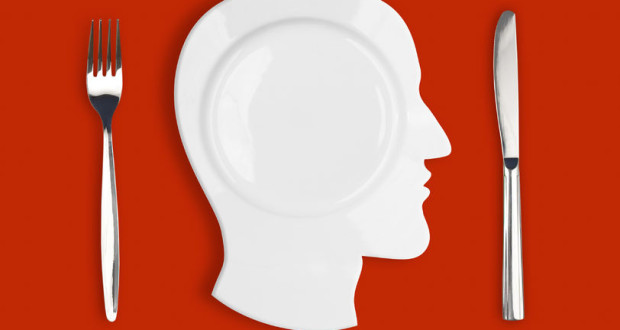When the health benefits of food are discussed, people usually focus on how proper dietary habits can maintain and improve the body’s physical health. This is to be expected, since the body obviously needs a well-balanced diet in order to fire on all cylinders. However, healthy foods may not just bolster your bones, muscles and organs. Eating nutritious items could help keep you in an upbeat and positive mood.
An Online Food Diary
According to a 2013 study, a person’s overall temperament could be improved by a diet rich in fruits and veggies. Conducted by researchers at New Zealand’s University of Otago, this report tracked the dietary habits of 281 volunteers. At the onset of the study, each participant was asked to provide their age, ethnicity, gender, weight and height on a questionnaire. Volunteers who reported having disorders were excluded from the study.
After filling out the questionnaires, the subjects were then told to keep an internet-based food diary for the proceeding three weeks. During this time period, the volunteers were asked to document their daily fruit and vegetable consumption. The diary also required subjects to report how frequently they ate unhealthy foods, such as cookies, chips and muffins. Finally, for each entry, the participants described their current emotional state with nine positive and nine negative words.
The study’s findings indicated that a healthy diet could be linked to better mental health. Compared to those who preferred junk food, subjects who ate many servings of fruit and veggies were found to be calmer, happier and more energetic. This relationship was observed across all BMI (body mass index) levels.
There were a few qualifications to this conclusion. First, the researchers found that only fruits and vegetables seemed to improve the subjects’ emotional states. And secondly, seven to eight daily servings of such foods were needed to see any noticeable mental health boost. The research team also cautioned that, though the results of the study were encouraging, further studies are needed to establish a firm link between proper diet and emotional wellbeing.
Whole Foods, The Mediterranean Diet and Dark Chocolate
Other reports have reached similar findings regarding this topic. Faculty at University College London (UCL) examined the prevalence of depression in two sets of subjects – one that ate primarily whole foods, and another that subsisted largely on processed items. Subjects in the former category ate mostly fish, fruits and vegetables. Examples of foods eaten by the second group include sweetened desserts, fried foods, refined grains, processed meats and high-dairy products. A total of 3500 middle-aged adults agreed to participate in the study.
Like the New-Zealand based researchers, the UCL team noted that people who adhered to healthier diets seemed to be more content with their lives. A processed foods diet, for example, was connected to a much higher risk of depression. Subjects who ate these products had a 58% greater depression risk than those who minimized their processed food intake. Likewise, when compared to participants who rarely ate whole foods, adults who followed the healthiest diet plans were 26% less likely to develop this condition.
There is also evidence that the Mediterranean diet may also have a positive impact on mental health. This diet emphasizes fruits, nuts, vegetables, legumes, whole grains and fish, and as a result tends to be high in folate and vitamin B12. In a study of nearly 9700 adults, Spanish researchers found that these nutrients might be useful in warding off depression. For male subjects, a lower risk of depression was found to be associated with high folate intake. Vitamin B12 had the same type of effect of women.
Finally, that brings us to chocolate. While chocolate has a (largely deserved) bad reputation, this doesn’t mean that all types of chocolate are inherently bad for the body. A 2009 study, conducted by Switzerland’s Nestlé Research Center, determined that dark chocolate could help reduce stress. Over a two-week period, the study’s 30 participants ate 1.4 ounces of dark chocolate daily. Using urine and blood plasma samples, the research team found that the chocolate lowered the subjects’ stress hormone levels. Since the study involved just a small number of participants, the authors stressed that future research is needed to confirm their findings.
 Natural Knowledge 24/7 Educate yourself with nutrition, health and fitness knowledge.
Natural Knowledge 24/7 Educate yourself with nutrition, health and fitness knowledge.






